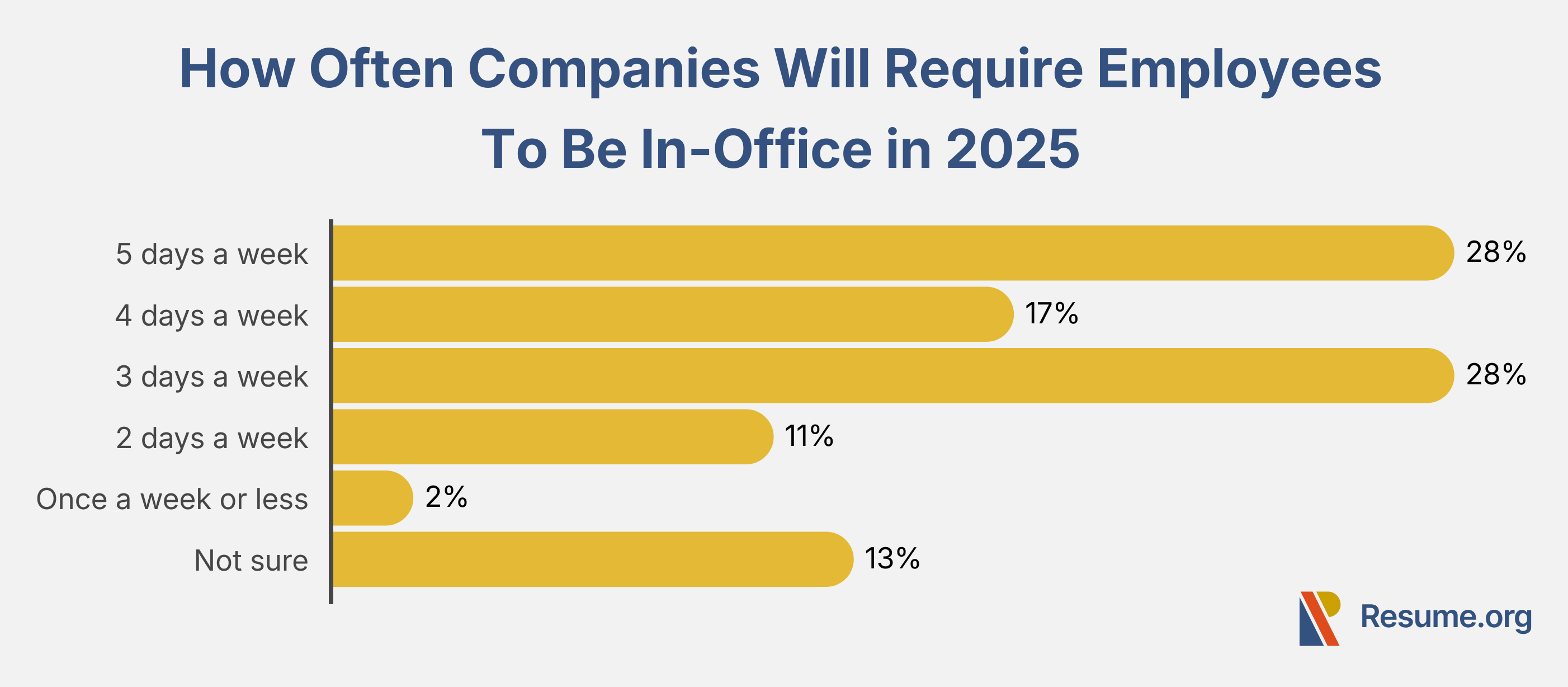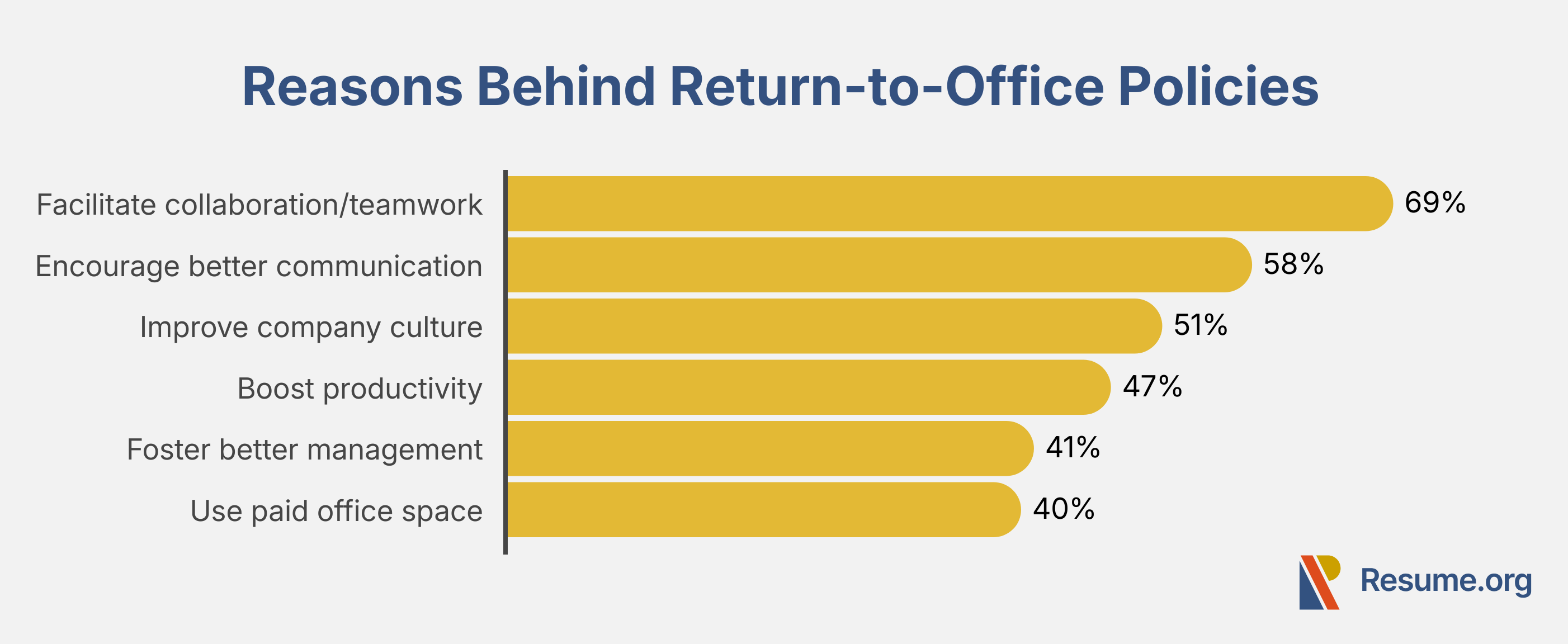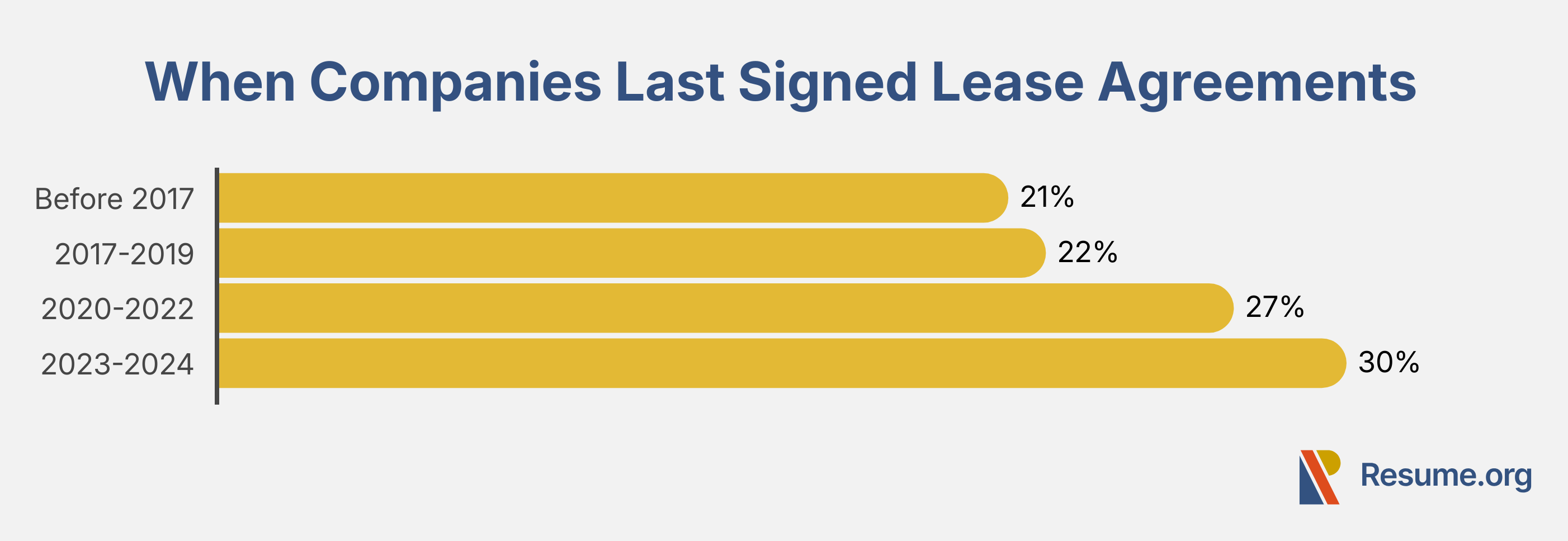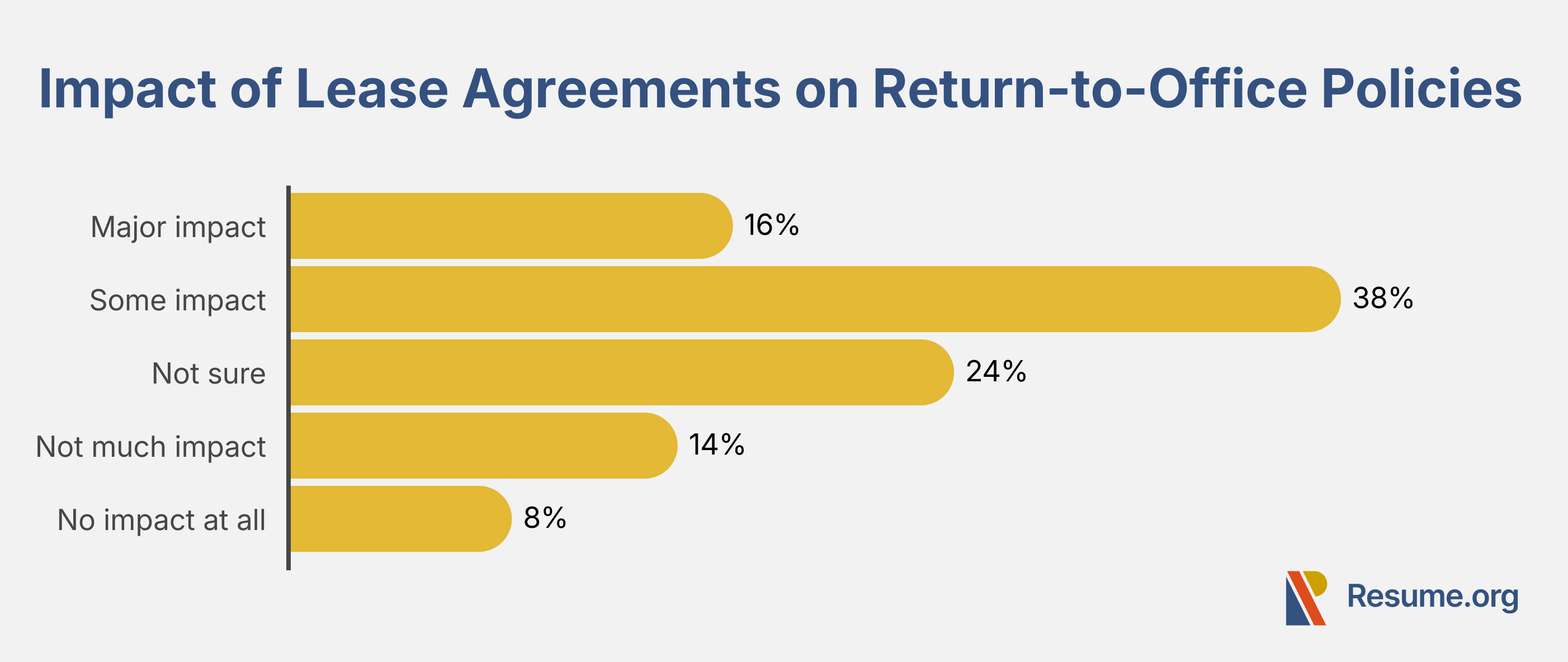The return-to-office (RTO) push remains a prominent trend in corporate environments.
In November 2024, Resume.org surveyed 900 business leaders at companies that went remote during the pandemic but have since implemented an RTO policy.
Major takeaways:
- 3 in 4 companies surveyed will require employees to be in the office at least 3 days per week next year
- Half of companies aren’t concerned about employees quitting over RTO policies
- Half of companies that lease office space say these agreements are affecting their RTO policies
- 1 in 10 companies will lessen or eliminate RTO policies upon lease expiration
3 in 10 Companies Will Require Workers in Office Full-Time in 2025
By the end of 2025, over 73% of companies surveyed that already have an RTO policy in place ,will require employees to work three or more days in the office. Nearly 30% will mandate a full five-day week. Only 2% plan to allow attendance once a week or less.

When asked about the potential for employees to quit over RTO policies, 32% of companies expressed concern — 6% are very concerned, and 26% are somewhat concerned. Meanwhile, 49% are not worried (36% not very concerned and 13% not at all), and 18% remain unsure.
The primary drivers for requiring employees to return to the office include fostering collaboration and teamwork (69%), improving communication (58%), strengthening company culture (51%), boosting productivity (47%), and simplifying employee management (41%). Additionally, 40% of companies cited a desire to make better use of the office space they pay for as a reason behind their RTO policies.

“Trust is the cornerstone of our business as a credit repair firm dealing with sensitive financial situations,” explains Ali Zane, CEO of Imax Credit Repair. “While remote work proved functional, face-to-face interactions reassured clients during high-stakes consultations. Additionally, our team thrives on in-person brainstorming sessions where complex strategies are developed collaboratively. The energy of a room often inspires solutions that don’t materialize over video call.”
Lease Agreements Play a Role in One-Third of Companies’ RTO Policies
Lease agreements appear to anchor many RTO policies. Two-thirds of companies currently lease office space, with nearly half of these leases extending until 2028 or later. A smaller percentage of leases are set to expire soon — 2% in 2024 and 12% in 2025.
Many companies signed or renewed their lease agreements before the pandemic, with 21% signing before 2017 and 22% securing leases between 2017 and 2019. However, some were signed more recently, with 27% signing agreements between 2020 and 2022 and 30% in 2023 or 2024.

For over half of companies leasing office space (or 35% of the total sample), current lease terms have impacted their RTO strategies. About 16% of companies report lease terms have a major impact on their RTO policy, while 38% say they play at least some role.

Kwame Darko, a real estate investor and founder of KD Buys Houses, a company specializing in residential and commercial property investments, notes the pandemic fundamentally changed how businesses and employees perceive the workplace.
“Remote work and hybrid models have proven to be effective, leading to a reevaluation of the necessity for large office spaces. When leases signed under pre-pandemic conditions expire, business leaders are presented with an opportunity to align their physical space needs with their current operations,” says Darko.
Darko shares three key factors that are driving these decisions:
- Cost optimization: Leasing large office spaces often represents a significant overhead expense. As businesses aim to cut costs, reducing office space or adopting flexible arrangements becomes a logical step.
- Employee preferences: Many employees now value the flexibility of remote or hybrid work. Companies are responding by creating policies that allow more freedom, often reducing the need for traditional office spaces.
- Operational efficiency: For some organizations, maintaining office space is still essential, but the way the space is utilized has evolved. Shared workspaces, hot-desking, and collaborative hubs are becoming more common.
1 in 10 companies will lessen or eliminate RTO policies upon lease expiration
When their lease expires, 23% of companies plan to decrease the amount of office space they rent. Of these companies, 32% will reduce the number of required days in the office, and 8% will stop requiring employees to go into the office.
Matt Morgan, a licensed California real estate salesperson with over 15 years of experience in commercial real estate,, has seen how lease agreements shape RTO decisions.
“The pandemic accelerated remote work adoption, and many businesses now question the necessity of large office spaces. I’ve observed that companies are reassessing their space needs and reducing office space requirements as leases expire,” says Morgan.
“Our clients are increasingly opting for shorter lease terms or flexible space arrangements to adapt to new work models. One example I encountered involved a retail client who reduced their office space by 30% post-pandemic, opting for a hybrid work model. The savings allowed them to reinvest in technology, supporting remote work efficiently. As leases come up for renewal, many businesses will likely follow this trend, prioritizing flexibility and cost-efficiency.”
Methodology: Using the Pollfish platform, Resume.org surveyed 900 business leaders in November 2024. To qualify, respondents had to meet specific demographic criteria. Respondents also had to answer screening questions to confirm they currently work for a company that has implemented a return-to-office policy since the COVID-19 pandemic.
Resume.org offers free, HR approved resume templates to help you create a professional resume in minutes. Choose from several template options and even pre-populate a resume from your profile.